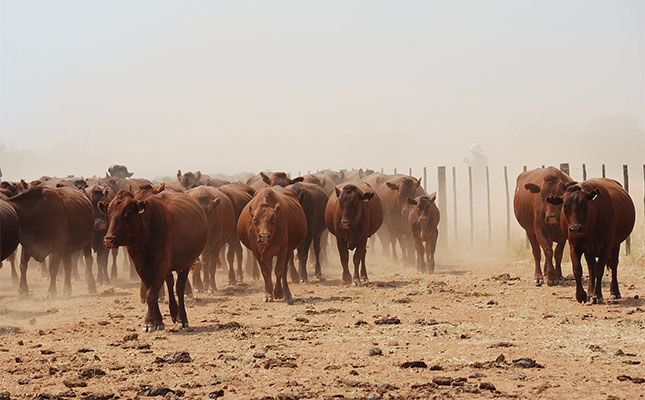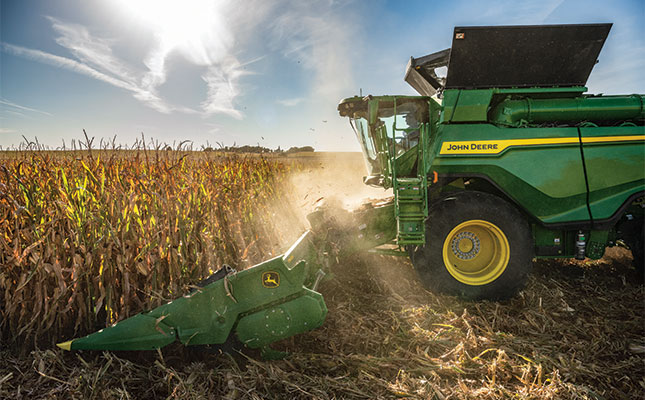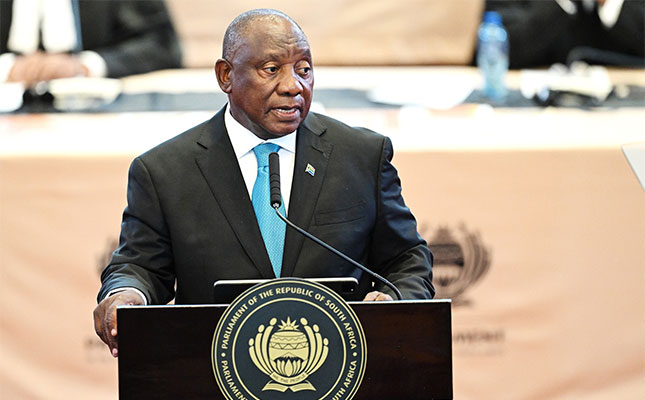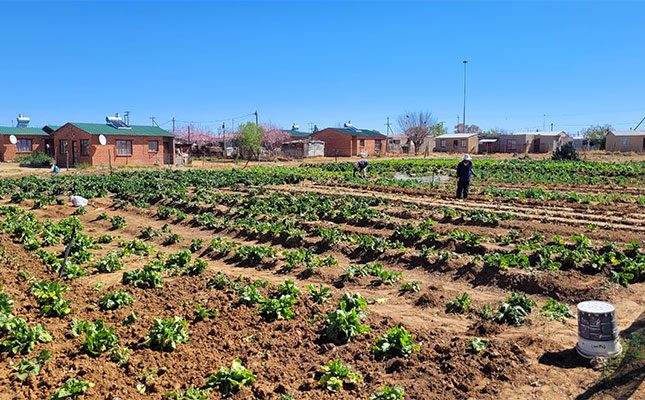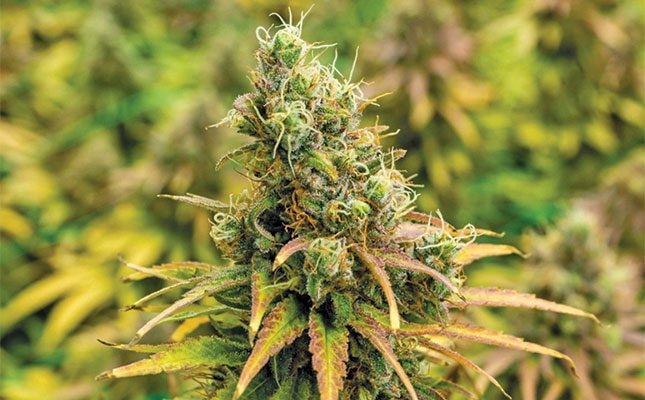
The Cannabis for Private Purposes Act (No. 7 of 2024) allows for the personal use of cannabis, but commercial cultivation and trade are still restricted under existing laws, creating legal grey areas that impact emerging growers and the broader industry.
“The [Department of Justice and Constitutional Development] has yet to publish regulations on the amount of cannabis that can be planted, but individuals are allowed to cultivate and consume cannabis privately as adults,” says Shaad Vayej, attorney, expert on legal cannabis, and founder of OpenFarms in Cape Town, Western Cape.
However, this Act does not extend to commercial use. “It specifically states that no adult can exchange cannabis with another adult for consideration. Consideration is defined as any gift, favour, benefit, reward, or compensation,” he explains.
This limitation means that cannabis clubs, which attempt to navigate this restriction, operate in a legal grey area.
“There is no lawful regulation that allows for commercial trading in cannabis internally in the country,” adds Vayej.
Despite this, South Africa does permit limited commercial cannabis activity under the Medicines and Related Substances Act (No. 101 of 1965).
“THC [tetrahydrocannabinol], the psychoactive element in cannabis, is classified as a Schedule 6 substance, while CBD [cannabidiol] is classified as Schedule 4,” says Vayej.
However, the South African Health Products Regulatory Authority (SAHPRA) states that complementary medicines containing a maximum of 600mg of CBD per pack, providing a maximum daily dose of 20mg, are classified as Schedule 0.
This regulation allows for certain medicinal cannabis products to be produced and exported, primarily to markets in the EU, UK, Australia, and Canada.
“Currently, there are over 110 licences for THC production issued under Section 22C of the Medicines [and Related Substances] Act, regulated by SAHPRA,” adds Vayej.
Challenges for small-scale growers
According to Vayej, the legal framework presents significant challenges for small-scale growers.
“The Cannabis for Private Purposes Act does not allow for commercial cultivation, nor does it empower companies to engage in trade. It strictly refers to individuals as private persons,” says Vayej.
This restriction comes at a significant economic cost for small- and medium-scale enterprises seeking to enter the cannabis market.
To circumvent these restrictions, some small-scale growers have turned to the Cannabis Grow Club model.
“This model operates in a legal grey area, where growers provide professional horticultural services rather than selling cannabis. Individuals lease portions of a farm, and the grower cultivates the crop on their behalf,” explains Vayej.
However, the legality of this model remains uncertain, he adds.
Regulatory differences between cannabis and hemp
While cannabis regulations remain restrictive, hemp cultivation follows a different regulatory path.
“Hemp is classified as an agricultural crop,” says Vayej.
Unlike cannabis, hemp is primarily cultivated for industrial purposes, such as biofuel production, building materials, and hemp-based food products.
“There are over 50 000 recorded uses of hemp, offering significant potential for small-scale farmers and rural enterprises,” he adds.
The distinction between cannabis and hemp creates administrative challenges for farmers. Hemp, typically defined as cannabis with a THC content of less than 0,2%, is regulated by the Department of Agriculture under the Plant Improvement Act (No. 53 of 1976).
Cannabis with a THC content above 0,2% is regulated by SAHPRA under the Medicines and Related Substances Act.
This discrepancy creates hurdles, particularly in a country like South Africa, with high UV exposure, which increases THC levels in plants.
“It’s next to impossible to stick to this level of 0,2% THC, which means farmers may sit with ‘hot hemp’ that exceeds the legal THC threshold and, therefore, loses its commercial value,” explains Vayej.
A significant barrier for farmers is the challenge of accessing hemp genetics that comply with the legal THC threshold.
“We are not able to utilise local landrace genetics that are well adapted to our environment,” he says.
Instead, producers must import certified hemp seeds, which raises their productions costs and excludes many smallholders from the industry.
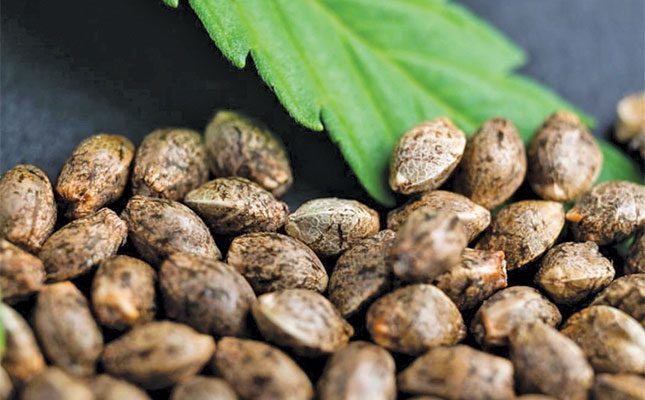
“We either have to genetically modify our local landrace varieties to comply, or we have to import seed, both of which are expensive options that limit participation.”
Vayej says that SAHPRA plays a crucial role in regulating the cultivation, processing, and trade of high-cannabinoid cannabis.
“SAHPRA is primarily concerned with health products and medicines. They issue licences, audit facilities, regulate the movement of cannabis products, and ensure compliance with strict packaging and distribution controls.
“When it comes to industrial hemp, however, SAHPRA’s involvement is minimal, unless the crop exceeds the [legal] THC limit [for hemp].
“The Department of Agriculture issues permits for hemp, but if the crop exceeds the THC limit, it falls under the Department of Health’s oversight, creating an additional regulatory burden,” adds Vayej.
Economic opportunities for rural communities
Despite these challenges, the hemp industry presents significant economic opportunities for rural communities.
“Hemp is the lowest-hanging fruit because it has a lower threshold for compliance and lower capital requirements,” says Vayej.
Rural communities with arable land can benefit from hemp cultivation, particularly for industrial applications like textiles, construction materials, biofuel, and animal feed.
However, a lack of access to capital and market infrastructure remains a significant barrier.
Vayej says rural farmers should be allowed to participate in the industrial and medical cannabis value chains.
“Large-scale outdoor production is possible, and by-product cultivation can yield valuable cannabinoids,” he says.
“Rural farmers could grow hemp for industrial purposes and harvest cannabinoid-rich raw biomass to sell to licensed medical processors, thus integrating into a lucrative medical value chain without being burdened by the same regulatory requirements as processors.”
However, small-scale farmers face significant barriers, including access to markets; an inability to integrate directly into existing value chains; the negative perception around the quality of their product; a lack of secondary processing facilities; and a lack of awareness around pricing, insurance and logistics requirements, among others.
Vayej also mentions that licensed buyers struggle to assess stock quality, and compliance requirements are often inaccessible for smaller producers.
Thus, OpenFarms has developed interventions to bridge the gap, providing marketing support, deal facilitation, regulatory advisory services, contract manufacturing, insurance facilitation, and logistical assistance to help small- to large-scale licensed farmers integrate into the commercial market.
Vayej says there is a need for government support to unlock the full potential of the cannabis industry. Regulatory frameworks should prioritise transformation, job creation, and economic development in rural areas.
“The focus should be on regulating the processors and the sale of final products, not the agricultural activity itself,” he says.
With effective government support and industry collaboration, South Africa has the potential to capitalise on the global cannabis market and integrate small-scale farmers into the medical and industrial value chains.
Trenton Birch, CEO and co-founder of Cheeba Cannabis Academy in Johannesburg, Gauteng, says that despite South Africa’s progress in legalising cannabis for medical purposes, the regulatory framework continues to sideline rural farmers who have long cultivated cannabis.
According to him, the current system presents significant barriers to small-scale and legacy growers.
“We need to separate the conversations. In the current framework, there is very little opportunity for rural farmers, there are no models or legislation for recreational cannabis, and the EU GMP [Good Manufacturing Practice] standards are, in my opinion, ridiculous for a plant.
“I think GMP is important, but EU GMP is Big Pharma dictating terms to keep people out of the market,” according to him.
Without clear avenues for legal participation, many traditional cannabis growers are forced to operate in the illicit or grey markets.
“The only way that a legacy farmer can cultivate is to either sell their product onto the illicit market or the grey market. The grey market consists of cannabis clubs, dispensaries, and pop-up shops, some of which follow models based on Spanish and German precedents, while most remain completely illegal. Without these options, there is no real way for a rural legacy farmer to make a living out of cannabis,” explains Birch.
He says that while the South African government has not invested in the cultivation of cannabis for medical use, it has legislation in place to regulate it.
“Government has capacitated people with money to cultivate medical cannabis, but you need R20 million just to get started. Meanwhile, the people who put cannabis on the global map for South Africa – the rural farmers, especially in the Pondoland region [of the Eastern Cape] – have been cultivating [it] for hundreds of years, sending their kids to school and putting food on the table [in the process].
“Yet, those people are still considered criminals. It’s a complete travesty and a disgrace that government, five or six years down the line, still does not have a model that includes Rastafarian growers and legacy cultivators, especially in regions like the Eastern Cape,” he says.
Similar challenges for hemp industry
The hemp industry, often seen as more accessible than its cannabis counterpart, has its fair share of challenges, primarily the lack of large-scale processing infrastructure.
“To make money from hemp, you need to cultivate and process at scale. Right now, we do not have the processing capacity to handle large volumes. Small farmers could potentially form co-operatives to contribute to bigger processing houses, but that model doesn’t exist at scale yet. A few places are trialling it on a small scale, but opportunities remain limited,” says Birch.
However, he acknowledges that small-scale farmers can find opportunities in cultivating hemp for CBD production.
“Growing hemp for CBD is far more valuable than industrial hemp. You can grow smaller volumes and still make money. But as it stands, legislation does not create many opportunities for rural farmers,” he explains.
Need for a recreational market
For the cannabis industry to truly support emerging farmers, Birch says South Africa must establish a regulated recreational market.
“Rural communities have supplied cannabis to this market for hundreds of years. But the problem is that many SAHPRA-approved farms have not been able to export their products, which has led them to flood the illicit market. This has effectively taken food off the table for rural farmers,” he says.
A well-regulated recreational market could provide legal avenues for traditional cultivators.
“We need legislation that allows cannabis clubs to operate under clear principles. This would enable cultivators to sell their cannabis to clubs, which could then sell it to recreational consumers. There’s a huge and rapidly growing market for this, and it’s one of the key ways we can integrate rural farmers into the legal industry,” adds Birch.
Until these legislative gaps are addressed, the cannabis and hemp industries will continue to exclude the very people who built their foundations. Birch says policymakers need to prioritise rural growers and create inclusive policies that support sustainable livelihoods in the sector.
As South Africa looks to develop its cannabis industry, challenges around supply chains, legislation, and market structure continue to hinder its potential.
According to Birch, the current landscape lacks the necessary infrastructure to support a thriving industry.
“I just cannot see a model for that; not now, anyway. If we’re talking hemp, again, what we need is supply chains to be set up. There’s a lot of conversation around how we can use hemp for biofuel or fibre, but those are very high-level, complex conversations,” he says.
The absence of large-scale processing facilities remains a significant obstacle, especially for industrial hemp applications.
“To process for those particular fields, you need volume and you need very expensive processing plants. However, if we’re talking about hemp from a nutritional perspective, using it as a food source and a protein source, or utilising certain parts of the plant for the building construction industry, those for me are the low-hanging fruit in terms of opportunities for farmers,” says Birch.
He adds that a decentralised market structure, where farmers can sell their hemp directly to consumers, as they do with traditional agricultural produce, is unlikely. Instead, centralised agro-processing hubs are necessary.
“I don’t believe there will be a market where you will be able to take your hemp that you’ve cultivated, like you would with tomatoes or red peppers [for example], and sell it straight to the market. I just don’t believe that will happen. I believe that you need to take the product into central hubs,” says Birch.
Currently, thousands of hemp permit holders in South Africa lack a clear understanding of the supply chain.
“There are at least 1 500 people who have hemp permits, and most have no idea why
they’re cultivating hemp or why they even have licences. They don’t understand the supply chain,” he adds.
The lack of clear legislation is another major barrier for entrepreneurs trying to enter the cannabis market.
“Without legislation, an industry cannot exist. Most of the markets that are out there, like the club markets and dispensary markets, are all operating in a very precarious situation. That, as an entrepreneur, is very nerve-racking and not a comfortable space,” says Birch.
He adds that many people mistakenly believe the cannabis industry is purely agricultural when, in reality, it spans multiple sectors.
“While agriculture is the catalyst, if you start to look at cannabis in terms of going into the medical markets, that is a complete industry on its own.
“The health and wellness market is an industry on its own. And then industrial hemp – used for food, fibre, or fabric – has its own downstream opportunities,” says Birch.
Another issue is the lack of financial support for entrepreneurs.
“We don’t have an angel investor network. People are paranoid about putting money into projects. There’s just no support for small businesses,” he adds.
Competitive advantage
South Africa’s international competitive advantage is also a critical aspect of the industry. Birch explains that while the country cannot directly compare itself to established markets like Canada and the US, the country has a significant advantage in terms of legacy.
“We have a deep legacy of cannabis cultivation. Most of the cannabis seized in Europe can be traced back to South Africa,” he says.
He is confident that the country could become one of the largest cannabis producers in the world, especially given its unique land-raised strains, which he believes offer a competitive edge over imported genetics.
Email Shaad Vayej at [email protected], and Trenton Birch at [email protected].
Get trusted farming news from Farmers Weekly in Google Top Stories.
➕ Add Farmers Weekly to Google ✔ Takes 10 seconds · ✔ Remove anytime
